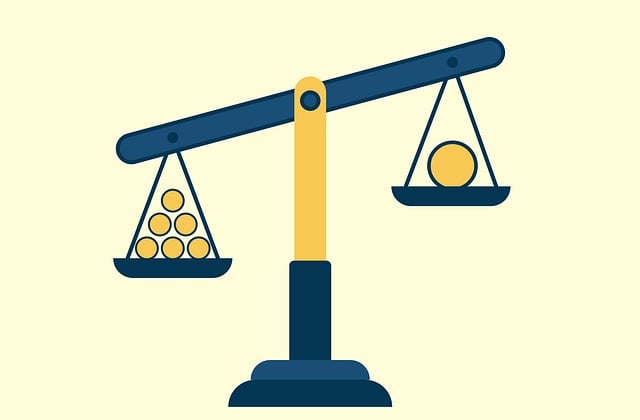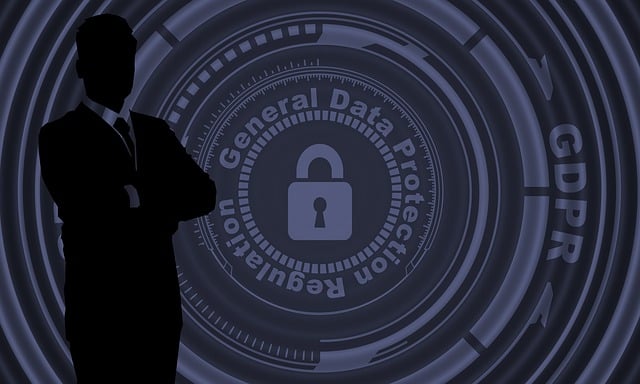In the digital age, where data privacy is paramount, adhering to compliance in background checks is crucial for companies. Global laws like GDPR and CCPA protect individuals' rights over personal information. Compliance involves obtaining consent, ensuring transparency, implementing robust security, and providing data access rights. Employers and background check agencies collaborate, with employers making hiring decisions based on suitability alone and agencies conducting thorough screenings while adhering to strict privacy regulations. Best practices include strong data storage policies, secure cloud storage, and data destruction protocols. Navigating privacy laws globally is essential for organizations, demonstrating ethical data management and building trust.
Staying compliant with privacy laws is essential when conducting background checks, protecting individuals’ sensitive information, and maintaining legal integrity. This comprehensive guide navigates the intricate landscape of data protection regulations, providing crucial insights for employers and agencies conducting background screenings. From understanding the scope of personal data involved to establishing best practices for data storage, we explore key aspects of compliance in background checks. Learn from real-world case studies and ensure your organization remains shielded against legal pitfalls.
- Privacy Laws: An Overview – Understanding the legal framework governing data protection and privacy.
- Background Checks and Personal Information – Exploring what types of data are typically involved in background checks.
- Compliance Requirements for Conducting Background Checks – Key steps to ensure adherence to privacy laws during the check process.
- Employer vs. Background Check Agency Responsibilities – Distinguishing roles and obligations between employers and third-party agencies.
- Data Storage and Retention: Best Practices – Safe guarding personal data after the background check is completed.
- Case Studies: Navigating Privacy Law Scenarios – Real-world examples demonstrating compliance in practice.
Privacy Laws: An Overview – Understanding the legal framework governing data protection and privacy.

In today’s digital age, where vast amounts of personal data are collected and processed, understanding privacy laws is paramount, especially when conducting background checks. Non-compliance can lead to severe legal repercussions and damage a company’s reputation. The legal framework governing data protection and privacy varies across jurisdictions but generally revolves around ensuring individuals’ rights over their personal information. Key regulations like the General Data Protection Regulation (GDPR) in Europe and the California Consumer Privacy Act (CCPA) in the US set stringent guidelines on how organizations can collect, store, and utilize personal data during background checks.
Compliance in background checks involves adhering to these laws by obtaining explicit consent for data processing, providing transparent notices about data collection practices, implementing robust security measures to protect sensitive information, and giving individuals the right to access, rectify, or erase their data. Understanding and staying within these legal boundaries are crucial to ensure fairness, maintain trust, and avoid potential legal challenges associated with privacy violations during background screening processes.
Background Checks and Personal Information – Exploring what types of data are typically involved in background checks.

Background checks often involve a wide range of personal information, from basic identification details like name and date of birth to more sensitive data such as criminal records, employment history, and even education transcripts. The specific types of data collected depend on the purpose of the background check and the jurisdiction in which it’s conducted. For instance, a background check for employment might include verifying educational credentials, checking references, and reviewing criminal history, whereas a check for security clearance could encompass medical records and financial histories.
Compliance with privacy laws is paramount when conducting background checks to protect individuals’ rights to data privacy. Different regions have distinct regulations—like the GDPR in Europe or the CCPA in California—that outline what information can be collected, how it must be stored, and who has access to it. Understanding these laws ensures that background check processes are fair, transparent, and respectful of personal privacy, fostering trust between organizations and individuals undergoing scrutiny.
Compliance Requirements for Conducting Background Checks – Key steps to ensure adherence to privacy laws during the check process.

When conducting background checks, ensuring compliance with privacy laws is paramount. The key steps involve implementing robust data protection measures, such as obtaining informed consent from individuals before collecting their personal information and securing sensitive data through encryption and access controls. It’s crucial to only collect relevant data necessary for the check and provide clear notices outlining how the information will be used and stored.
Regular training for employees handling these checks is essential to foster a culture of privacy awareness. Additionally, staying updated with legislative changes related to background checks is vital to maintain compliance. Regular audits and vulnerability assessments can also help identify and rectify any gaps in your procedures, ensuring a comprehensive approach to protecting personal data during the background check process.
Employer vs. Background Check Agency Responsibilities – Distinguishing roles and obligations between employers and third-party agencies.

Employers and background check agencies have distinct roles and responsibilities when conducting background screenings, which is crucial for maintaining compliance in background checks. An employer’s primary duty is to ensure they make job offers or decisions based solely on an individual’s suitability for the role, as determined by the results of the background check. They must follow legal guidelines regarding what information can be requested and how it should be used, especially when considering sensitive data from candidates’ criminal histories. Employers are responsible for ensuring the accuracy and privacy of the process, but they rely on third-party agencies to handle the actual verification and collection of data.
Third-party background check agencies, on the other hand, specialize in gathering and verifying information. They are contracted by employers to conduct thorough screenings, checking various aspects like criminal records, education, employment history, and sometimes even health or credit reports (where permitted). These agencies must adhere to strict regulations regarding data privacy and security. They are obligated to obtain consent from individuals before conducting checks, provide clear notices about the scope of the investigation, and ensure that personal information is handled securely and confidentially.
Data Storage and Retention: Best Practices – Safe guarding personal data after the background check is completed.

After completing a background check, safeguarding personal data is crucial for maintaining compliance in background checks. Organizations should establish robust data storage and retention policies to ensure that sensitive information is protected against unauthorized access or disclosure. This includes encrypting all stored data, limiting access only to authorized personnel, and regularly reviewing and updating security measures. Additionally, organizations must adhere to data retention schedules, retaining records only for the duration necessary to fulfill legal obligations or business purposes.
Best practices involve implementing secure cloud storage solutions that meet industry standards, such as SOC 2 or ISO 27001, along with on-premises backups. Regular data destruction protocols, including secure erasure and physical shredding, should be in place for any discarded records. Compliance with these best practices not only ensures the privacy of individuals but also helps organizations avoid legal repercussions and maintain their reputation.
Case Studies: Navigating Privacy Law Scenarios – Real-world examples demonstrating compliance in practice.

In the realm of background checks, navigating privacy laws is a complex yet crucial aspect for organizations and employers. Real-world scenarios provide valuable insights into how compliance can be achieved successfully. For instance, consider a case where a tech startup plans to expand its workforce globally. This involves conducting extensive background checks on candidates from various countries with diverse legal frameworks. The company must ensure it adheres to the privacy laws of each region, such as the GDPR in Europe or the CCPA in California. They employ a meticulous process, obtaining informed consent from applicants, securely storing sensitive data, and anonymizing information where possible to protect individuals’ privacy rights.
Another example involves a healthcare provider implementing a new employee screening system. By studying relevant case law and industry best practices, they design a comprehensive check that complies with health-specific regulations like HIPAA in the US. This includes implementing strict access controls, encrypting data transmission, and training staff on handling patient information securely. These practical approaches not only ensure compliance but also foster trust among employees and candidates, demonstrating a commitment to ethical data management.
